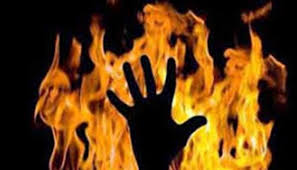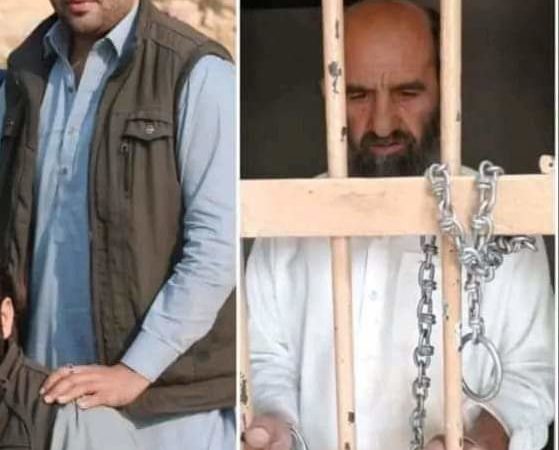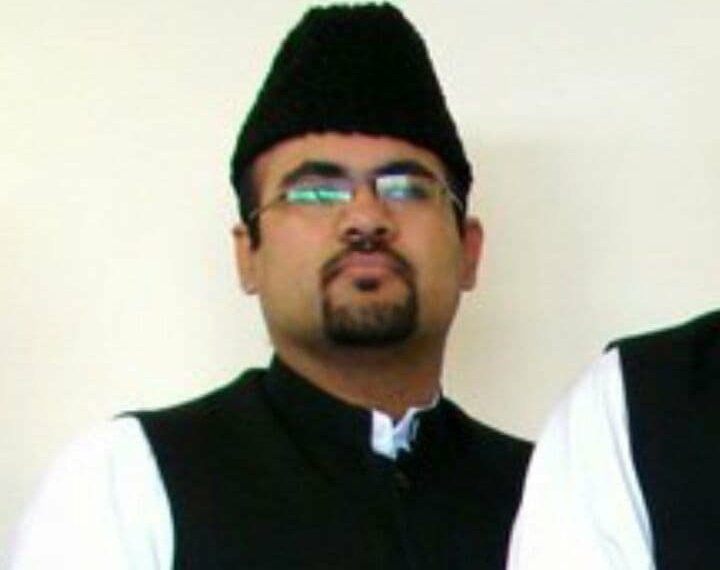Buddhist views on suicide examined after climate activist self-immolated on Earth Day

Back in 1965, the renowned Vietnamese Buddhist monk Thich Nhat Hanh wrote a letter to the Rev. Martin Luther King Jr., in which the anti-war activist sought to explain to the civil rights icon why monks were self-immolating in protest of the Vietnam War and discrimination against Buddhists by the Roman Catholic-led Saigon government.
His aim was to convince King to publicly oppose U.S. military efforts in Vietnam, which King eventually did. Thich Nhat Hanh, who died in January at 95, sought in his letter to explain to King why the acts of self-immolation differed from ordinary suicide.
“The self-burning of Vietnamese Buddhist monks … is somehow difficult for (the) Western Christian conscience to understand,” he wrote to King.
“The press spoke then of suicide, but in the essence, it is not. It is not even a protest,” Nhat Hanh wrote, pointing to the letters the monks left behind, which called attention to the plight of the Vietnamese and were, he insisted, “aimed only at alarming, at moving the hearts of the oppressors.”
“To burn oneself by fire is to prove that what one is saying is of the utmost importance. There is nothing more painful than burning oneself. To say something while experiencing this kind of pain is to say it with utmost courage, frankness, determination, and sincerity.”
Contrast that with a statement issued by the Rocky Mountain Ecodharma Retreat Center after Wynn Alan Bruce, a 50-year-old Buddhist from Boulder who frequently attended meditation retreats and volunteered at the Colorado facility, died from setting himself on fire outside the U.S. Supreme Court in Washington, D.C., last Friday (April 22) — Earth Day.
Bruce apparently left no explanation. But it’s been widely concluded that he intended his act as a protest against global governments not doing more to counter climate change. Kritee Kanko, who said she was his friend and is also on the Rocky Mountain leadership committee, said Bruce had planned his self-immolation for at least a year.
“This act is not suicide,” Kanko wrote on Twitter early Sunday morning. “This is a deeply fearless act of compassion to bring attention to climate crisis … people are being driven to extreme amounts of climate grief and despair.”
Kanko told The New York Times she feared that copycats might follow suit. “What I do not want to happen is that young people start thinking about self-immolation,” she said.
The Washington Post reported that, according to his father, Bruce had tried to self-immolate in front of the World Trade Center in New York in 2017 but was stopped.
In its statement, the Rocky Mountain center said: “We want to emphasize that none of the Buddhist teachers in the Boulder area knew about his plans to self-immolate on this Earth Day. If we had known about his plans, we would have stopped him in any way possible. That would be our spiritual, moral and legal responsibility. Just like everyone else, we have been trying to figure out what happened.”
The statement pointed to Buddhists’ vow to protect all life and reduce all suffering and highlighted the work of the center in “creative and strategic movement building” around racial healing, justice and climate action. The center does not advocate self-immolation, according to the statement, and has never talked about it as a climate action.
“Nevertheless, given the dire state of the planet and worsening climate crisis, we understand why someone might do that,” said the statement, noting the Buddhist history of self-immolation to highlight atrocities. “But that is not something that we would ever encourage. We hope we can hear Wynn’s message without condoning his method,” the statement added.
The statement was followed on the center’s webpage by a list of phone numbers for those contemplating suicide and seeking help.
The passing of a half-century and a change of location from Buddhism-saturated Vietnam to culturally Christian America appears to have made a difference.
Buddhism does not categorically reject suicide, though its approval is very limited.
“Buddhism in its various forms affirms that, while suicide as self-sacrifice may be appropriate for the person who is an arhat, one who has attained enlightenment, it is still very much the exception to the rule,” noted the Encyclopedia of World Religions.
Elsewhere, Andrew Holecek, a Buddhist author and seminar leader, also from the Boulder area, wrote:
“Most Buddhist traditions also remind us that suffering is the nature of (life), and until we learn how to relate to it properly, thereby transforming it, we’ll never get out of samsara — even if we take our own lives. Buddhism maintains that pain is an unavoidable companion in life, but suffering doesn’t need to be. Suffering is an inappropriate relationship to pain, and the path is largely about learning how to relate to pain properly — and therefore end our suffering.”
Samsara is the Buddhist term for what the tradition teaches is humanity’s endless cycle of death and rebirth. Buddhism teaches that nirvana, or liberation from samsara, is the end goal of spiritual practice.
Matthieu Ricard, a French-born Tibetan Buddhist monk and close aide of the Dalai Lama, added:
“By saying to yourself, ‘What’s the point in living?’ you deprive yourself of the inner transformation that would have been possible. To overcome an obstacle is to transform it into an aid to your progress … Suicide solves nothing at all, it only shifts the problem to another state of consciousness.”
Bruce is not the first person to choose this form of protest in response to the climate crisis. Gay-rights lawyer and environmental activist David Buckel died after setting himself on fire in New York in April 2018.
“Most humans on the planet now breathe air made unhealthy by fossil fuels, and many die early deaths as a result — my early death by fossil fuel reflects what we are doing to ourselves,” Buckel said in a note he left behind.
If Bruce’s intention was to somehow spark a mass reaction against climate change, he may have been encouraged by the Saigon monks Thich Nhat Hanh wrote about in his letter to King. The monks, after all, did succeed in focusing global attention on their government’s corruption and ineffectiveness.
Or perhaps he was motivated by the 2010 self-immolation of a Tunisian fruit and vegetable seller in protest of the government confiscating his weight scales? His action sparked the Arab Spring protests.
EcoWatch, a leading environmental news website, noted that Bruce’s Facebook posts were replete with warnings about the dangers of climate change.
Bruce’s Facebook writings provided evidence of his concern over climate change. He may have also revealed that he planned to self-immolate. In October 2021, he posted a fire emoji.
On April 2 of this year he edited that post, adding the date “4/22/22” — Earth Day. EcoWatch labeled this an “apparent announcement of his plans.”
EcoWatch also tagged its story on Bruce’s death with information on contacting suicide prevention hotlines.
Courtesy: RNS



